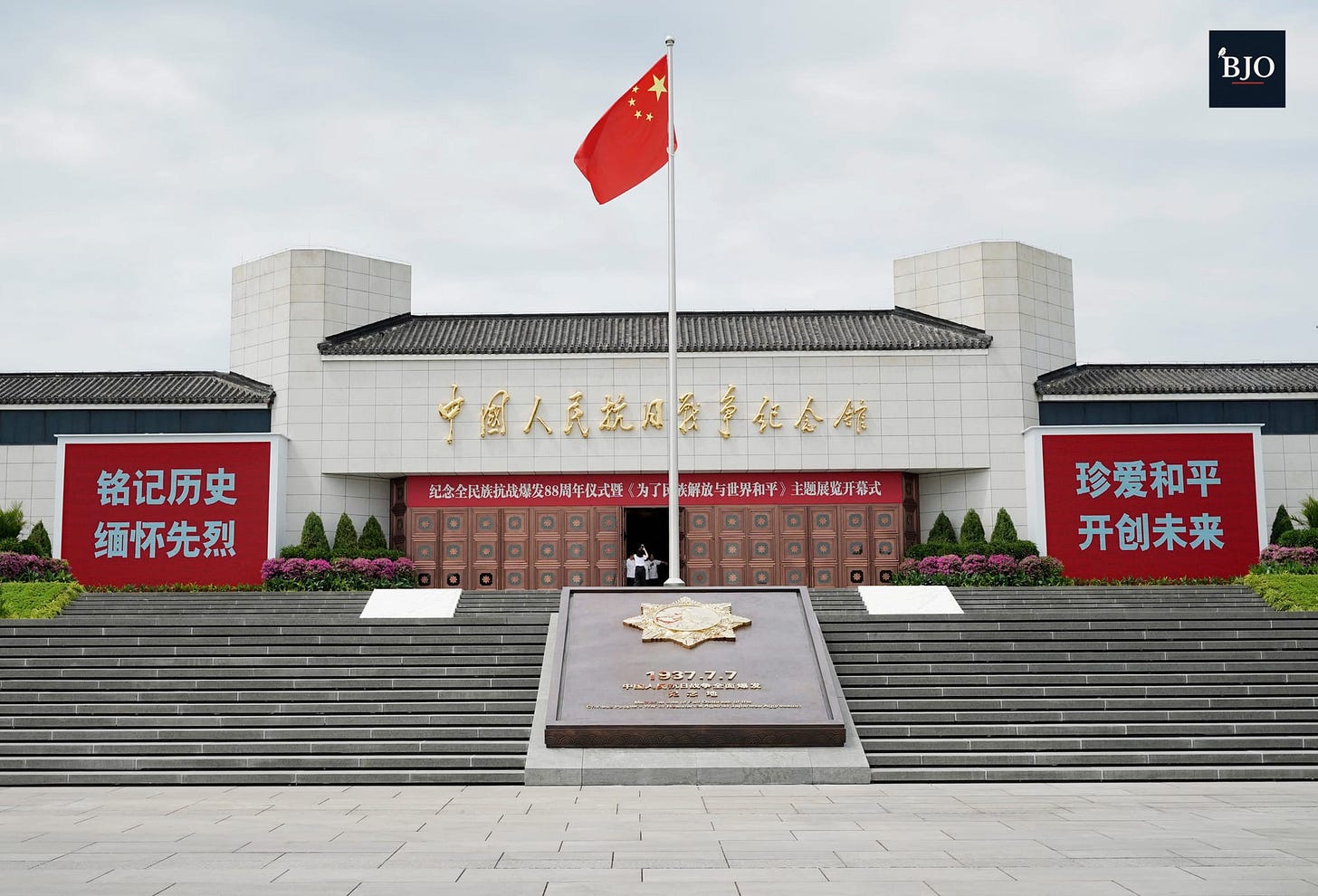Beyond Commemoration: Understanding China's Development Since Victory in World War II
By Ding Gang
In September, China will solemnly commemorate the 80th anniversary of the victory in the War of Resistance against Japanese Aggression. This commemoration is not only a time to collectively remember history and honor the martyrs, but also a pivotal moment for the world to re-examine China's crucial role in World War II and understand the unremitting pursuit of the Chinese people from that era to today.
The contributions of the Chinese people to defeating fascism during the war have garnered renewed attention in American and Western academic circles. Despite differences in perspectives and research focuses, the general trend is undeniable: the international academic community is gradually adjusting its understanding of this war, moving beyond the narrow frameworks of the past, and acknowledging that China's long and arduous resistance played a crucial role in defeating Japanese militarism and in the global victory over fascism.
However, for China, commemorating this war is not merely about retracing the path to victory. Nor is it, as some might assume, limited to a form of national self-praise or an external display of great power status. Its true significance lies in how an ancient eastern nation, ravaged by foreign aggression and internal turmoil, stood up at a historical turning point—choosing the difficult road of independence and self-reliance, thereby adding important new dimensions to the theoretical and practical understanding of national awakening and rejuvenation.
To grasp the significance of this commemoration, one needs to review the trajectory of China's modern history. Starting from the mid-19th century, China suffered from imperialist invasions and the humiliation of being carved up by foreign powers. The Opium Wars and the subsequent century of humiliation not only brought enormous material destruction but also left many with a lingering sense of national weakness and loss of dignity.
Against this backdrop, the War of Resistance against Japanese Aggression marked the culmination of long-term national suffering and a firm step toward collective national rejuvenation. It was a great victory of the Chinese nation in countering foreign aggression and provided China with the possibility, for the first time in generations, to truly take control of its own destiny. This was not a change of political power but a grand historical watershed that redefined the nation's prospects.
In the decades after 1949, China rose from the ruins. Though starting with almost nothing, the Chinese people, with unwavering will, embarked on a unique journey guided by the principle of independence and self-reliance. This journey was filled with ongoing challenges and innovations born of self-reliance. From the arduous industrial infrastructure campaigns and "the Third Front movement" (the strategic industrial relocation to inland areas), through various difficulties and challenges, to the reform and opening-up starting in 1978, China's continuous pursuit of prosperity and strength has always been closely intertwined with safeguarding national dignity and peaceful development.
Today, China has become a country with global influence and strong national strength. However, unlike many great powers in the past, China adheres to the path of peaceful development. It neither seeks to export its model nor intends to reshape other societies in its own image. This is a belief honed through painful experiences: a once-traumatized nation can pursue modernization in a gradual, stable, and peaceful manner, and then, with the strength accumulated through self-reliance, persistently strive to promote lasting peace in the region and the world.
The difficulty Western countries have in understanding China's aspirations stems largely from their tendency to judge China's choices through a Western historical lens, assuming that China will follow the same power-driven and great-power competition trajectory that shaped the past of Western powers.
Some former powers are still trying to divide Asia into spheres of influence and, following the outdated logic of the so-called "balance of power," form cliques and gangs to contain China's development. They spread the "China threat theory" everywhere and created tensions around China. In contrast, China stands as an anchor of stability amid turbulence and chaos, resilient and steadfast, projecting confidence in development to the world.
This is because, from the victory in the War of Resistance to the present day, what the Chinese nation has pursued is fundamentally not hegemony, let alone vying for power with any other power. Prosperity and strength can only be created through one's own efforts.
China is well aware of the pain of division and subjugation, and recognizes that dividing Asia through hegemony or confrontation will inevitably lead to catastrophic consequences. Asia today can no longer be divided and dominated by powerful nations.

As a witness to history and a shaper of the future, China has a responsibility to share its arduous experience of national rejuvenation with other Asian countries and the world, and contribute to forging a security order that can maintain lasting peace. Facing a rapidly changing region and a fluid global environment, China advocates dialogue, cooperation, and a more inclusive, mutually beneficial order to ensure the security and prosperity of all countries.
Ding Gang is a senior researcher at Chongyang Institute for Financial Studies, Renmin University of China, and a senior journalist at People's Daily. The views don't necessarily reflect those of BeijingOpinion.





